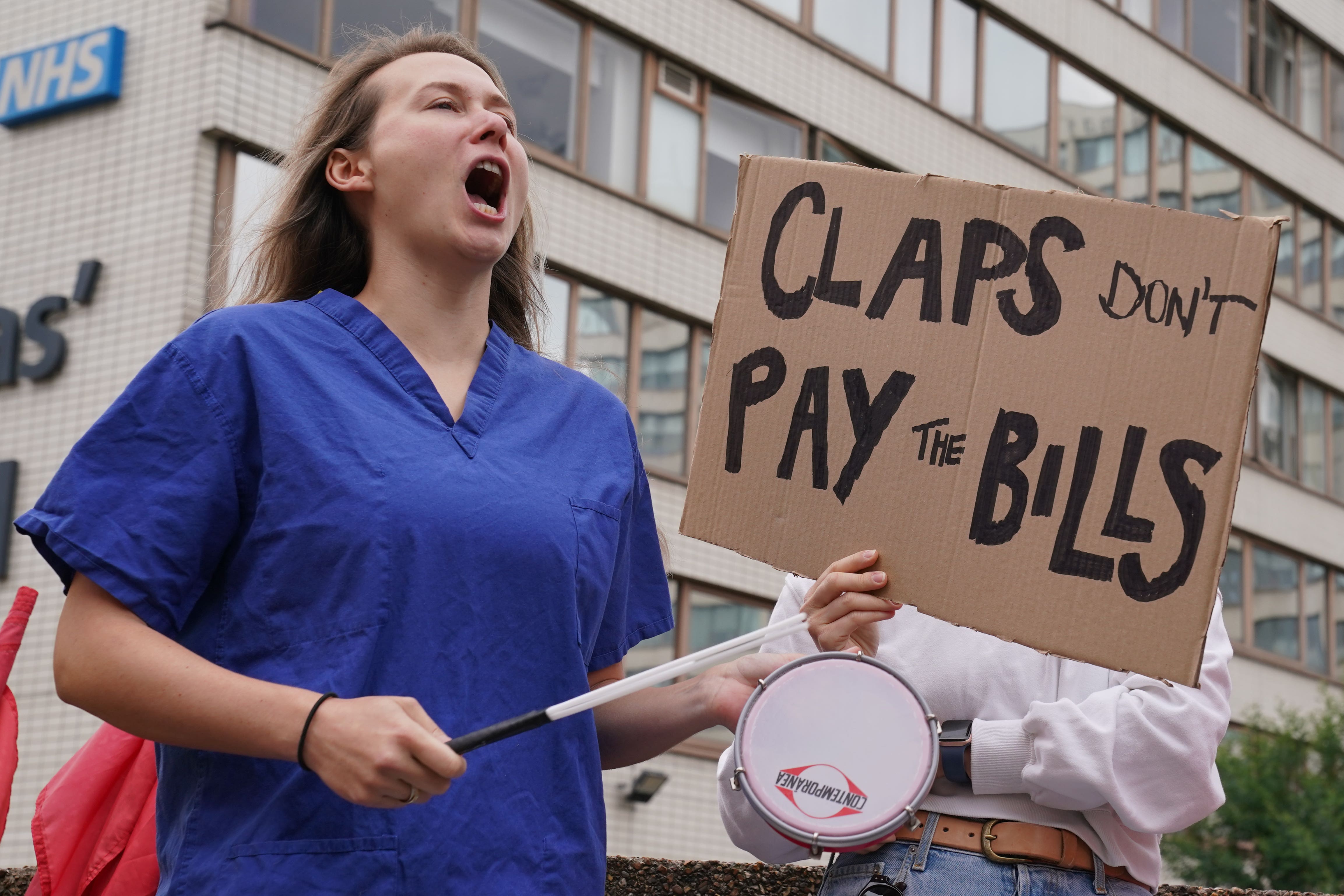Double-digit pay rises for public sector workers not inflationary – think tank
The Institute for Public Policy Research says public sector staff should be offered a 10.5% rise.

Your support helps us to tell the story
From reproductive rights to climate change to Big Tech, The Independent is on the ground when the story is developing. Whether it's investigating the financials of Elon Musk's pro-Trump PAC or producing our latest documentary, 'The A Word', which shines a light on the American women fighting for reproductive rights, we know how important it is to parse out the facts from the messaging.
At such a critical moment in US history, we need reporters on the ground. Your donation allows us to keep sending journalists to speak to both sides of the story.
The Independent is trusted by Americans across the entire political spectrum. And unlike many other quality news outlets, we choose not to lock Americans out of our reporting and analysis with paywalls. We believe quality journalism should be available to everyone, paid for by those who can afford it.
Your support makes all the difference.Double-digit pay rises for public sector workers would not be inflationary, a think tank report says.
A 10.5% salary boost for public sector staff would add 0.14 percentage points at most to inflation if funded by borrowing, new analysis by the progressive Institute for Public Policy Research found.
It would have no impact on price rises if funded by taxation, the centre-left think tank adds.
The move would cost an additional £7.2 billion on top of the money Prime Minister Rishi Sunak allocated to public sector pay pots last week when he announced a 6% pay increase for millions of workers.
Public sector workers would still be £1,400 worse off this year than they were when the pandemic began if they got a 6% boost, the report found.
Research shows that there is very little inflationary impact from a significant pay rise, but that the need to stop the fall in living standards for public sector workers is urgent
Raising salaries by 10.5% would restore wages to the level they were in March 2020.
The think tank says such a move is the only way to end all strikes and better recruit and retain key workers, and would also help hard-pressed employees struggling with the cost of living.
It also argues politicians should commit to raising public sector pay faster than inflation every year for the next five years.
Options for raising extra revenue include a wealth tax, re-introducing the national insurance rise and equalising rates on capital gains and income from work among others.
Report author and IPPR researcher Joseph Evans said: “It’s wrong to claim that giving the public sector a more meaningful pay rise will further embed inflation.
“Research shows that there is very little inflationary impact from a significant pay rise, but that the need to stop the fall in living standards for public sector workers is urgent.
Addressing the workforce crisis in the public sector requires restoring decent pay
“Without an inflation-matching pay rise the public sector will continue to face a triple crisis of falling living standards, a recruitment emergency and declining quality of public services.”
IPPR senior economist and report author Carsten Jung said: “The Government’s claim that by protecting public sector pay we would hugely increase inflation is a red herring.
“The analysis which the Government itself cites shows that restoring real pay to pre-pandemic levels would have only a marginal impact on inflation.
“Addressing the workforce crisis in the public sector requires restoring decent pay.
“This will require funding it through higher and fairer taxation – which the Government is shying away from.”
The Government has said large pay rises for public sector staff would make it more difficult to bring inflation down.
Last week, Chancellor Jeremy Hunt said the Government would take “difficult but responsible” decisions on public sector pay to tackle inflation.
On Thursday, Mr Sunak accepted recommendations by independent pay review bodies, which said most public sector workers should receive pay rises of 6%.
Teachers will get a 6.5% rise, junior doctors will get 6% plus a £1,250 permanent increase, and police officers across all ranks will get 7%.
Some of the money will come from increasing charges foreigners pay to use the NHS and increasing the costs of certain visas, while the rest will come from departmental budgets.
Teaching unions said they would recommend an end to industrial action to members following the announcement.